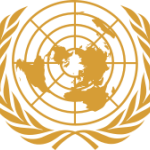- Sektör: NGO
- Number of terms: 31364
- Number of blossaries: 0
- Company Profile:
The United Nations Organization (UNO), or simply United Nations (UN), is an international organization whose stated aims are facilitating cooperation in international law, international security, economic development, social progress, human rights, and the achieving of world peace.
French accounting system that attempts to include all components of nature that can be quantitatively or qualitatively changed by human activity (Theys, 1989). It includes the description of non-renewable resources, environmental media and living organisms of ecosystems, agents that may affect natural assets and systems, and impacts of human beings on nature, both in monetary and in physical terms.
Industry:Environment
All natural assets which are not economic assets. Environmental assets are non-produced natural assets that do not function as providers of natural resource inputs into production but as providers of environmental services of waste absorption, ecological functions such as habitat or flood and climate control, and other non-economic amenities such as health and aesthetical values. See natural assets.
Industry:Environment
Day-to-day or sometimes even instantaneous changes of atmospheric conditions over a given place or area. In contrast, climate encompasses the statistical ensemble of all weather conditions during a long period of time over that place or area. Atmospheric conditions are measured by the meteorological parameters of air temperature, barometric pressure, wind velocity, humidity, clouds and precipitation.
Industry:Environment
Group of organic compounds used in the manufacture of plastics, as lubricants, and dielectric fluids in transformers, in protective coating for wood, metal and concrete, and in adhesives, wire coating and so forth. They are highly toxic to aquatic life and persist in the environment for long periods of time. They can accumulate in food chains and may produce harmful side-effects at high concentrations.
Industry:Environment
Net return realized from the sale of a natural resource under particular conditions of long-term market equilibrium. It is defined as the revenue received minus all marginal costs of resource exploitation, exploration and development including a normal return to fixed capital employed; the Hotelling Rent is used as a measure of natural resource depletion in environmental accounting. See market valuation.
Industry:Environment
Overall amount of fishing (usually per unit of time) expressed in units such as boat days on the fishing ground, number of traps or trawl haul, etc. It usually relates to a specific fishery and gear. If more than one gear is considered, the fishing effort has to be standardized to ensure proportionality with fishing mortality (biologists' perspective) or cost of fishing (economists' perspective).
Industry:Environment
All the trees and other woody plants (underbrush) covering the ground in a forest. It includes (a) trees and all shrubs, (b) herbs and shrubs growing thereunder or in openings in the forest or brush fields, (c) litter or fallen leaves, branches, fallen trees and other vegetable material on the forest floor and (d) the rich humus of partially decayed vegetable matter at the surface and top layer of the soil.
Industry:Environment
Techniques and technologies capable of reducing environmental damage through processes and materials that generate fewer potentially damaging substances, recover such substances from emissions prior to discharge, or utilize and recycle production residues. The assessment of these technologies should account for their interaction with the socio-economic and cultural conditions under which they are implemented.
Industry:Environment
Actual environmental protection costs incurred in preventing or neutralizing a decrease in environmental quality, as well as the expenditures necessary to compensate for or repair the negative effects (damage) of environmental deterioration. Such costs include expenditures required to mitigate environment-related health and other welfare effects on human beings. See also environment-related defensive activities.
Industry:Environment
System consisting mainly of data on environmental protection expenditure and economic data on the use and management of natural resources. Links to physical data such as the amount of waste and other pollutants generated or avoided, and the use of water and other resources, are to be established in parallel as far as possible. The System is designed to form a series of satellite accounts of the national accounts.
Industry:Environment
